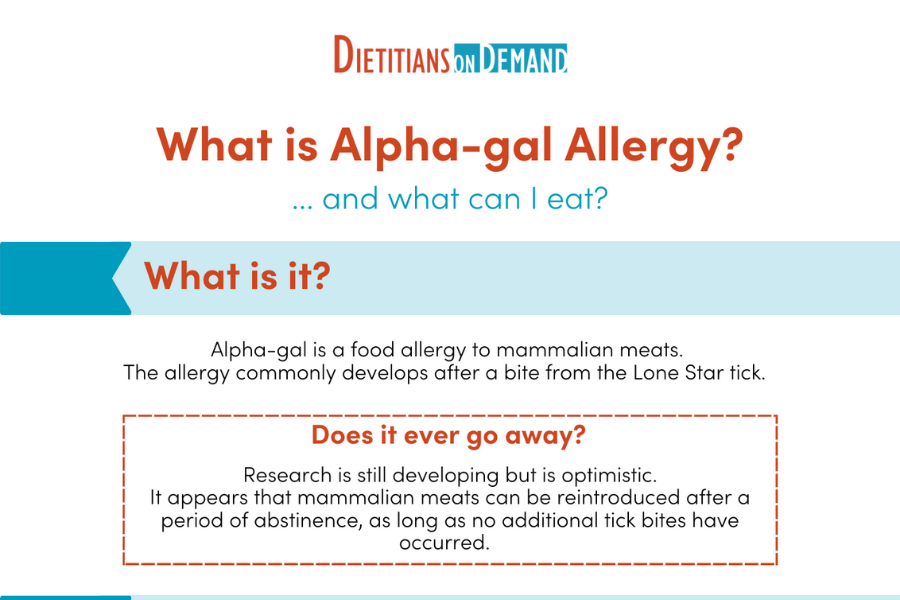The Pervasive Alpha-Gal Syndrome: A Meat Allergy Plagues 4.5 Lakh in the US

The Pervasive Alpha-Gal Syndrome: A Meat Allergy Plagues 4.5 Lakh in the US
A mysterious allergy known as Alpha-Gal Syndrome has emerged as a widespread health concern, affecting a staggering 4.5 lakh individuals across the United States. Characterized by a severe allergic reaction to red meat, this baffling condition has left medical experts puzzled and individuals grappling with a sudden dietary shift. As we delve deeper into the enigma of Alpha-Gal Syndrome, we seek to unravel its origins, symptoms, diagnosis, and the challenges it poses to those affected.
Understanding Alpha-Gal Syndrome
Alpha-Gal Syndrome, abbreviated as AGS, is an allergic reaction caused by a peculiar carbohydrate called Alpha-Galactose (Alpha-Gal). When a person with AGS consumes red meat from mammals like beef, pork, or lamb, the immune system responds aggressively, triggering a range of adverse symptoms. Interestingly, this allergy is not immediate; instead, symptoms often arise several hours after consuming the meat.
The Enigmatic Source of Alpha-Gal
Researchers are still uncovering the origins of this baffling condition. However, the leading theory suggests that the bite of certain ticks, such as the lone star tick (Amblyomma americanum), plays a pivotal role. These ticks harbor Alpha-Gal in their saliva, which they transfer to humans during a bite. Consequently, the immune system identifies Alpha-Gal as a foreign invader, leading to the development of antibodies against it. This, in turn, sets the stage for the allergic reaction upon meat consumption, as the mammalian meats contain Alpha-Gal.
Unraveling the Symptoms
Symptoms of Alpha-Gal Syndrome can be distressing and, in some cases, life-threatening. The most common symptoms include hives, itching, swelling, gastrointestinal discomfort, and in severe cases, anaphylaxis. Anaphylaxis is a severe, whole-body allergic reaction that can lead to difficulty breathing, loss of consciousness, and even death if not promptly treated.

The Diagnostic Conundrum
Diagnosing Alpha-Gal Syndrome is no easy task. Due to the delayed onset of symptoms, people often have difficulty connecting their allergic reactions to meat consumption. This frequently leads to misdiagnosis or delayed diagnosis, further complicating the management of the condition. Medical professionals typically employ a combination of patient history, allergen testing, and blood tests to identify Alpha-Gal antibodies and confirm the diagnosis.
The Meat-Free Lifestyle
For those diagnosed with Alpha-Gal Syndrome, the diagnosis can be life-altering. Suddenly, foods that were once enjoyed without a second thought become potential hazards. Embracing a meat-free lifestyle becomes crucial to avoiding allergic reactions. Many find this transition challenging, both from a practical and emotional standpoint, as meat has long been a staple in the American diet.
Challenges and Coping Strategies
Living with Alpha-Gal Syndrome presents several challenges, beyond the need to adapt to a meat-free diet. Social situations, gatherings, and dining out can become stressful experiences, as individuals must vigilantly check for hidden meat ingredients in various dishes. Additionally, certain medications, such as gelatin-based capsules, can contain Alpha-Gal, adding further complexity to managing the condition.
Despite these challenges, support networks have sprung up across the country, offering valuable advice, recipes, and encouragement for those navigating the meat-free journey. Medical professionals are also actively researching potential treatments, including immunotherapy and allergy desensitization, which may one day offer relief to those affected by Alpha-Gal Syndrome.

The Call for Awareness and Prevention
As Alpha-Gal Syndrome continues to perplex medical professionals, raising awareness about the condition becomes paramount. Educating the public, especially those living in regions where the lone star tick is prevalent, can help individuals recognize the symptoms early on, leading to quicker diagnosis and appropriate management. Additionally, promoting tick bite prevention measures, such as wearing protective clothing and using insect repellent, may reduce the likelihood of developing Alpha-Gal Syndrome in the first place.
The Impact on Agriculture and Food Industry
The surge in Alpha-Gal Syndrome cases has also left a significant impact on the agriculture and food industries. With an increasing number of consumers avoiding red meat due to the allergy, demand for alternative protein sources, such as plant-based and lab-grown meats, has skyrocketed. This shift in consumer preferences has forced meat producers and restaurants to adapt their menus and offerings, embracing a wider variety of non-mammalian protein options.
Global Reach of Alpha-Gal Syndrome
While the bulk of reported Alpha-Gal Syndrome cases have occurred in the United States, incidents of this mysterious meat allergy have been documented in other parts of the world as well. Researchers have identified similar tick species in Europe, Asia, and Australia, potentially indicating a global prevalence of this condition. Nevertheless, much remains unknown about the prevalence and specific factors contributing to AGS in these regions.
Collaborative Research Efforts
The complexity of Alpha-Gal Syndrome necessitates collaborative efforts from various fields of research. Allergists, immunologists, entomologists, and epidemiologists are working in tandem to unlock the mysteries surrounding this condition. The close cooperation between medical experts and tick researchers aims to uncover new insights into how the tick bite leads to the development of Alpha-Gal antibodies and, ultimately, the allergic reaction to meat.
Hope on the Horizon
Though living with Alpha-Gal Syndrome can be challenging, there is hope on the horizon. Ongoing research has shown promising results in the field of immunotherapy and desensitization, which could provide long-term relief for individuals with AGS. These innovative treatments aim to retrain the immune system’s response to Alpha-Gal, reducing the severity of allergic reactions and allowing some patients to reintroduce small amounts of meat into their diets safely.
Moreover, advancements in diagnostic tools, such as more accurate and accessible allergen testing, may lead to quicker and more precise diagnoses. Early detection and intervention are key to minimizing the impact of Alpha-Gal Syndrome on individuals’ lives.
Final Thoughts
Alpha-Gal Syndrome, the enigmatic meat allergy affecting thousands in the United States, remains a complex and evolving health challenge. With the prevalence of the condition on the rise, understanding its origins, symptoms, and management becomes increasingly crucial. As medical research continues to shed light on the mysteries of this allergy, individuals and communities affected by Alpha-Gal Syndrome find strength in support networks and a growing awareness of their condition.
As society learns to adapt and embrace meat-free alternatives, the journey towards a meat-allergy-free world becomes a shared endeavor. With continued research, education, and empathy, we can work towards a future where the impact of Alpha-Gal Syndrome is minimized, and those affected can live healthy, fulfilling lives unrestricted by the enigma of this meat allergy.






